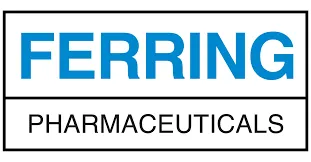
Real-World Outcomes Data for ADSTILADRIN® to Be Presented at 2025 ASCO Genitourinary Symposium
Ferring Pharmaceuticals recently announced that three abstracts showcasing ADSTILADRIN® (nadofaragene firadenovec-vncg) will be presented at the 2025 American Society of Clinical Oncology Genitourinary Cancers Symposium (ASCO GU), taking place from February 13-15 in San Francisco. ADSTILADRIN is a groundbreaking treatment, being the first and only intravesical non-replicating gene therapy approved by the U.S. Food and Drug Administration (FDA) for patients suffering from high-risk Bacillus Calmette-Guérin (BCG)-unresponsive non-muscle invasive bladder cancer (NMIBC) with carcinoma in situ (CIS), with or without papillary tumors (±Ta/T1). This approval has provided a new treatment option for patients who face limited therapeutic choices.
ADSTILADRIN offers a potentially life-changing treatment to those affected by BCG-unresponsive NMIBC, a particularly challenging form of bladder cancer. Traditionally, BCG therapy is the gold standard for treating this condition; however, a significant subset of patients does not respond to BCG, leaving them with fewer treatment options. The FDA’s approval of ADSTILADRIN as the first non-replicating gene therapy for this condition has been a significant milestone for the medical community.
Mayo Clinic’s Contribution to ADSTILADRIN Research
Among the most anticipated presentations at the ASCO GU Symposium will be the updated early results of an independent, retrospective real-world outcomes study led by Mayo Clinic. This study, conducted at three Mayo Clinic sites, evaluates the clinical effectiveness of ADSTILADRIN in patients with high-risk BCG-unresponsive NMIBC. The data being presented will include key measures such as complete response rates, high-grade recurrence-free survival, cystectomy-free survival, overall survival, and the incidence of adverse events among patients treated with ADSTILADRIN.
Dr. Mark D. Tyson, a urologic oncologist and associate professor at Mayo Clinic in Scottsdale, Arizona, is the principal investigator of this independent study. Dr. Tyson emphasized the importance of understanding real-world outcomes for patients with BCG-unresponsive NMIBC, noting, “Understanding real-world outcomes in patients with BCG-unresponsive NMIBC is essential for informing how we approach treatment and deliver care.” These early results offer valuable insights into the real-world benefits of ADSTILADRIN, showing its potential to improve clinical practice. By providing data on the treatment’s effectiveness in a real-world setting, healthcare providers can make more informed decisions and deliver better care to patients facing this aggressive form of bladder cancer.

Real-World Data Supporting ADSTILADRIN’s Efficacy and Safety
The presentation of these real-world outcomes will add to the growing body of evidence supporting the efficacy, safety, and low treatment burden of ADSTILADRIN. This is particularly important given the complexity of treating patients with BCG-unresponsive NMIBC, who often have limited options for effective treatment. By evaluating the long-term outcomes of patients treated with ADSTILADRIN, including survival rates and recurrence-free survival, this study adds valuable evidence to the therapeutic profile of the drug.
Bipin Dalmia, Global Head of Uro-Oncology & Urology Franchise at Ferring Pharmaceuticals, commented on the significance of this data, stating, “These real-world data extend the body of evidence for efficacy, safety, and low treatment burden of ADSTILADRIN in NMIBC patients who no longer respond to BCG, building on the positive five-year results from our pivotal Phase 3 trial announced last year.” He also highlighted that ADSTILADRIN is the first FDA-approved intravesical bladder-sparing monotherapy for BCG-unresponsive NMIBC patients, which adds to the potential impact of the drug on clinical practice. This approval offers an important option for patients who would otherwise require cystectomy, a major surgical procedure involving the removal of the bladder.
The real-world data generated from these studies will provide crucial evidence that ADSTILADRIN can help reduce the burden of disease and improve the quality of life for patients with BCG-unresponsive NMIBC. This will contribute to the drug’s positioning as a new standard of care for these patients.
Advancing Research with Ongoing Clinical Trials
In addition to the real-world outcomes study, Ferring Pharmaceuticals is also advancing its clinical trial program for ADSTILADRIN. Two important clinical trials within the ABLE (ADSTILADRIN in BLadder CancEr) program will be presented at the ASCO GU Symposium: the three-arm ABLE-22 study and the two-arm ABLE-32 study. These studies are designed to investigate the safety and efficacy of ADSTILADRIN in both high-risk and intermediate-risk NMIBC patients.
Both studies have recently activated clinical sites and are recruiting patients to evaluate the drug’s performance in different patient populations. The data gathered from these clinical trials will provide additional evidence on the optimal use of ADSTILADRIN in treating NMIBC. With ongoing research into its long-term benefits and safety profile, Ferring Pharmaceuticals is further committed to understanding how ADSTILADRIN can best be utilized to manage this challenging cancer.
Dalmia further explained, “The continuation of our clinical trial program further Real-World highlights our commitment to advancing the science in our journey to establish ADSTILADRIN asReal-World the new standard of care and backbone therapy across the urothelial Real- cancer disease spectrum.” Real-World The ABLE studies are expected to add even more valuable Real- data to the growing body of evidence supporting ADSTILADRIN’s role in bladder cancer treatment Real-World.
A Convenient Treatment for Patients
One of the key advantages of ADSTILADRIN is its convenience. The treatment regimen involves a quarterly dosing schedule, which may improve patient adherence to the therapy. This is particularly important for patients with chronic conditions like NMIBC, who require ongoing treatment to manage their disease. By offering a treatment that is less burdensome in terms of frequency, ADSTILADRIN presents a promising option for patients who might struggle with more frequent therapies.
“The continued availability of ADSTILADRIN throughout the United States is a significant achievement,” said Dalmia. “By offering this treatment option with a quarterly dosing schedule, we hope to encourage better treatment adherence and, ultimately, better outcomes for patients.”
About ABLE-22 and ABLE-32
ABLE-22 (NCT06545955) is a three-arm, Phase 2 trial evaluating ADSTILADRIN as a monotherapy and as part of combination with chemotherapy or an immune checkpoint inhibitor in patients with high-risk BCG-unresponsive NMIBC. Investigators in all three arms of the ABLE-22 study will have the option to re-induce appropriate patients who do not achieve a complete response to the initial single dose or combination regimen, an option that was not included in the original Phase 3 study.
The Phase 3B ABLE-32 (NCT06510374) trial is assessing ADSTILADRIN in patients with intermediate-risk NMIBC (IR NMIBC), for which there are no U.S. FDA-approved treatment options.
About ADSTILADRIN
ADSTILADRIN® (nadofaragene firadenovec-vncg) is the first and only FDA-approved intravesical non-replicating gene-therapy for the treatment of adult patients with high-risk Bacillus Calmette-Guérin (BCG)-unresponsive non-muscle invasive bladder cancer (NMIBC) with carcinoma in situ (CIS) with or without papillary tumors. It is a non-replicating adenovirus vector-based therapy containing the gene interferon alfa-2b, administered locally as a monotherapy by catheter directly into the bladder once every three months. The vector enters the cells of the bladder wall, releasing the active gene and causing the bladder’s cell walls to secrete high and transient local expression of interferon alfa-2b protein, a naturally occurring protein the body uses to fight cancer. This approach essentially turns the bladder wall cells into interferon microfactories, enhancing the body’s own natural defenses against the cancer.
ADSTILADRIN has been studied in a clinical trial program that includes 157 patients with high-risk, BCG-unresponsive NMIBC who had been treated with adequate BCG previously and did not see benefit from additional BCG treatment (full inclusion criteria published on clinicaltrials.gov: NCT02773849).1
Ferring is leading the future in uro-oncology treatment with ADSTILADRIN at the center, while expanding access with the support of new, state-of-the-art manufacturing facilities. As announced in January 2024, ADSTILADRIN is fully available and accessible in the U.S. ADSTILADRIN has confirmed 99 percent coverage for commercial and government-insured patients. As of April 1, 2024, in accordance with the Centers for Medicare and Medicaid Services (CMS), ADSTILADRIN established an Average Sales Price (ASP). Since the establishment of ASP, all covered claims submitted for reimbursement have received payment within an average of 25 days.2
Ferring is committed to investing in novel therapies, developing life-changing solutions that address unmet medical needs, and aiding the uro-oncology community in helping patients live better lives. More information is available in the U.S. at FerringUroOncology.com and on the dedicated Ferring Uro-Oncology channels on LinkedIn and X.
About Non-Muscle Invasive Bladder Cancer (NMIBC)
NMIBC is a form of bladder cancer that is found in the inner layer cells of the bladder and does not invade into or beyond the muscle wall.3 In the United States, bladder cancer is the sixth most common cancer,4 fourth among men,5 and it is estimated that there will be approximately 84,870 new cases of bladder cancer in the U.S. in 2025.5 Historically, 75% of bladder cancer presents as NMIBC.6 In patients with high-risk NMIBC, intravesical BCG remains the first-line standard-of-care. However, approximately one third of patients with NMIBC will not respond to BCG therapy and 50% of those with an initial response will experience recurrence or progression of their disease.7 Current treatment options for BCG-unresponsive patients are very limited, and National Comprehensive Cancer Network (NCCN) guidelines recommend cystectomy (partial or complete removal of the bladder).





